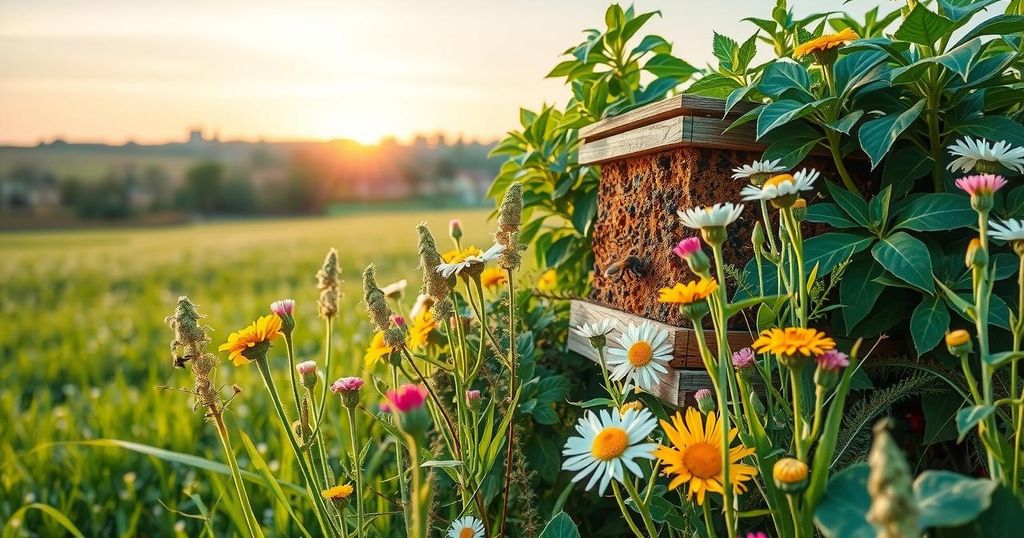Temperature Management and Water Supplementation Essential for Kenyan Beekeepers
A study indicates that temperature management and water supplementation can reduce honeybee colony losses by 10% among Kenyan beekeepers. Conducted over a year, the research found average losses of 36% in honeybee populations due to climate change, urging adaptations in beekeeping practices for sustainability.
A recent study underscores the importance of temperature management and water supplementation in reducing bee colony losses among Kenyan beekeepers. Conducted over a year, the research indicated that beekeepers who provided water to their colonies experienced a 10% reduction in losses compared to those who did not. This finding is particularly significant given the climatic challenges—extended drought and fluctuating temperatures—that have led to an average 36% decline in honeybee populations in Kenya from October 2021 to September 2022.
Honeybees, especially the Western honeybee (Apis mellifera), are vital for plant pollination and agricultural stability, contributing substantially to the economy. Factors such as drought have severely impacted their populations, with limited access to water and forage plants like mangoes creating harsh conditions for beekeeping. Experts stress the need for further evaluation of beekeeping education focused on climate adaptation techniques, especially water provision.
The yearlong study collected data from 589 beekeepers across diverse climatic regions within Kenya, revealing significant losses of bee colonies—higher during hot, dry periods (31.9%) versus wet seasons (20.2%). The study’s authors, including Malena Sibaja Leyton, pointed out that high temperatures exacerbate colony losses while adequate precipitation could offer some relief. Leyton emphasizes that water supplementation represents an effective management strategy.
Furthermore, Leyton recommends that beekeepers also consider other adaptive measures, such as hive relocation, supplementary feeding during food shortages, and providing shade to protect colonies from extreme heat. The findings indicate the adaptability necessary for sustainable beekeeping, equipping beekeepers and policymakers with better strategies to combat climate-induced challenges.
Daniel Waigwa, a beekeeper in Nyeri County, supports the study’s conclusions about the effects of climate change on honeybee production, noting the correlation between drought, limited plant access, and economic losses for beekeepers. Waigwa suggests a need for long-term adaptations and highlights the importance of resilience in honeybee strains against shifting environmental conditions.
Ezekiel Ndunda, an academic from Kenyatta University, stresses the importance of conducting extended studies to monitor the fluctuations in honeybee populations against longstanding climate patterns. He advocates for incorporating climate change models to predict future trends affecting beekeeping, thereby improving chances of colony survival.
Ndunda also points out the potential benefits of analyzing how educational efforts in beekeeping could enhance climate adaptation practices among Kenyan apiarists. His insights call for an integrated approach using climatic and socioeconomic data to provide a more thorough understanding of challenges faced by beekeepers in maintaining honeybee populations.
In conclusion, the recent study highlights the critical role of temperature management and water supplementation in mitigating honeybee colony losses in Kenya. The findings indicate that adopting adaptive practices can significantly benefit beekeepers facing the adverse effects of changing climatic conditions. An increased focus on education and long-term studies can further enhance the sustainability of beekeeping in the region, ensuring the continued vitality of bee populations essential for agricultural productivity.
Original Source: news.mongabay.com




Post Comment